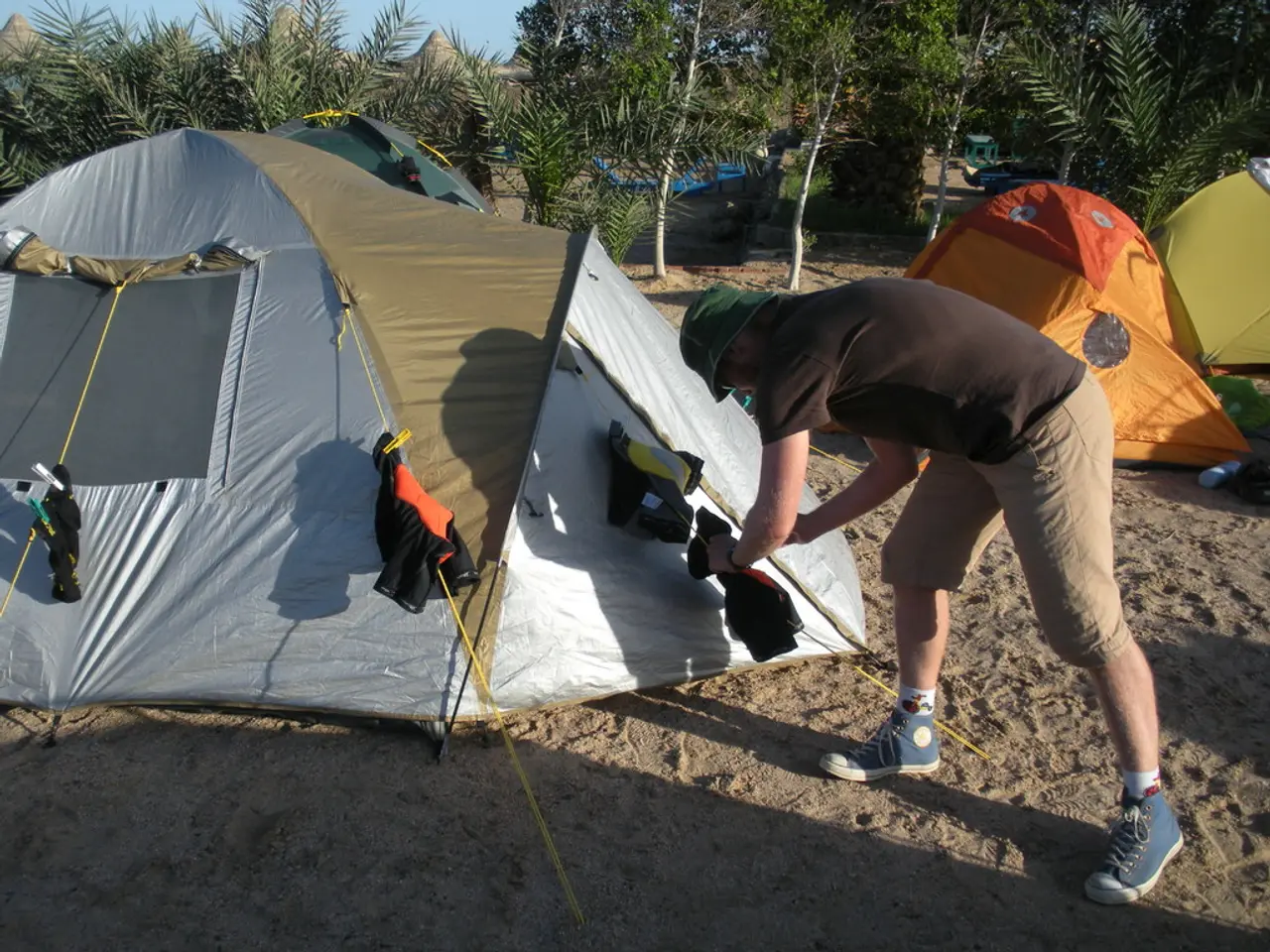Controversy Surrounding Fly Camping on Dartmoor Overlooks Its Real Implications
In a summer forum for outdoor leaders, Gillian Heally brought up the growing concern over problematic behavior such as littering in popular outdoor areas across the country. This discussion comes as the legal landscape of wild camping in England and Wales undergoes significant changes.
Currently, wild camping remains largely illegal or unclear across most of England and Wales. However, developments are underway to expand legal access in a controlled manner. The British Mountaineering Council (BMC) is campaigning in 2025 to legalize wild camping on open access lands in multiple National Parks for a 12-month trial. The aim is to create clear laws, codes of conduct, and infrastructure to support responsible camping.
A unique exception to this rule is Dartmoor National Park. A recent Supreme Court ruling restored the right to wild camp on private land without permission there, making it the only national park in England where wild camping is definitively allowed without prior consent. However, this ruling has led to a significant rise in unregulated "fly-camping," causing environmental degradation and social problems like littering, fire risks, and damage to fragile ecosystems.
In Wales, while wild camping is not strictly illegal, it must follow specific rules and guidelines to be considered responsible and acceptable. This nuanced legal framework emphasizes care for the environment and land management interests.
If the recent court case had gone the other way, responsible wild campers would have been criminalized or deterred from spending time on Dartmoor. To avoid such outcomes, clear statutory reforms are necessary. Potentially, this could involve amending the Countryside and Rights of Way Act 2000 or introducing new legislation to officially allow wild camping as a recreational right on open access land.
In addition, a Responsible Wild Camping Code would need to be developed and enforced to balance visitor freedoms with protection of natural and community interests. Funding for National Parks, AONBs, and land managers would also need to be allocated to support education, ranger services, signage, and infrastructure during trial implementation.
Control measures and possible local restrictions in sensitive or heavily impacted areas may also be necessary to prevent environmental damage and antisocial behavior. Gillian Heally, a Dartmoor Guide and coordinator for The Stars are for Everyone, supports these measures, stating, "Education is seen as a key solution to address problems like littering in outdoor areas, rather than erecting barriers to prevent people from going outdoors."
The BMC's campaign for expanding the right to wild camp across the country is passionately supported by Heally. She observes an increase in wild campers in popular areas like Postbridge, but no trace of their presence the next day. Many outdoor online influencers also stress the importance of "leave no trace" ethics.
However, the media coverage of the court case has increased the numbers of people visiting Dartmoor to wild camp, leading to problems such as littering. Sadly, an increase in vehicle visitation, whether for overnight stays or day trips, often leads to these issues.
Heally emphasizes that the vast majority of these people wild camp responsibly. She believes that making it difficult or impossible for groups and families to legally spend quality time in the wilderness may affect the next generation's understanding of how to behave in and value green spaces. People drive from the North and Midlands to Devon to wild camp on Dartmoor, passing over other wild places.
Dartmoor is the only place in England and Wales where you can legally camp in a natural setting without paying for the privilege. This unique status has come under pressure in a post-lockdown era of outdoor online influencers. Heally warns against conflating wild camping with nuisance camping and bad behavior in the outdoors.
In summary, the current status is a patchwork of provisional legality, with Dartmoor as an outlier allowing unpermitted wild camping and most of England and Wales remaining restrictive but poised for reform trials. The legal implications involve balancing expanded rights with stewardship responsibilities and managing environmental and social impacts through new regulations and resources.
Read also:
- Dinesh Master's Expedition: Acquiring Mango Orchard through Our Online Platform
- Expanded Plant-Based Protein Industry Forecasted to Reach a Value of $30.8 Billion by 2034, Growing at a Compound Annual Growth Rate (CAGR) of 7.1%
- Waste from grapes transformed into a robust substitute for plastic, degrades within seventeen days
- German government grants additional research funding to Rock Tech Lithium for continued lithium exploration and development projects.



